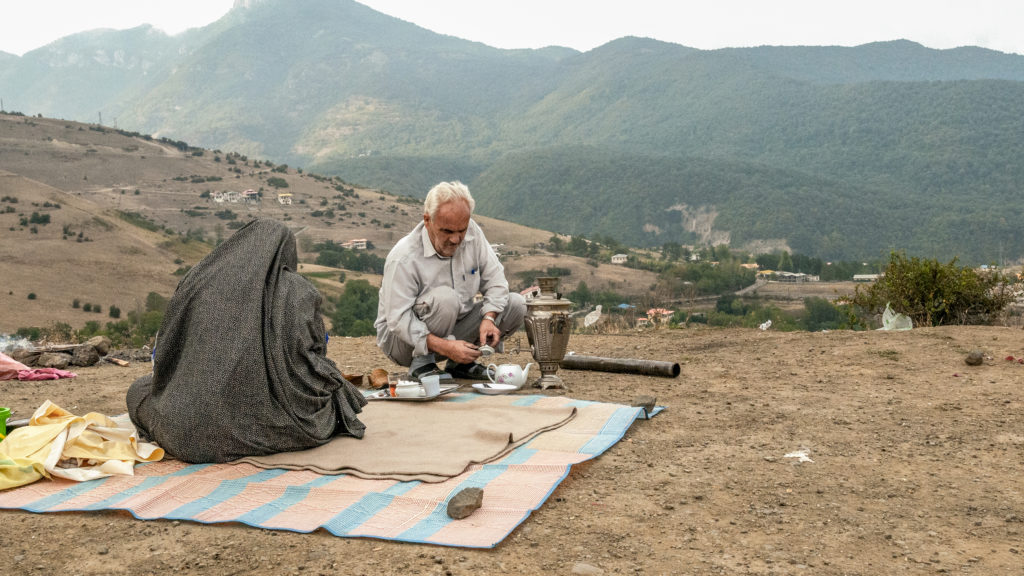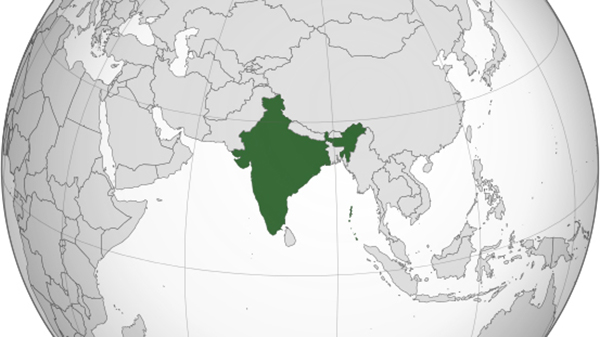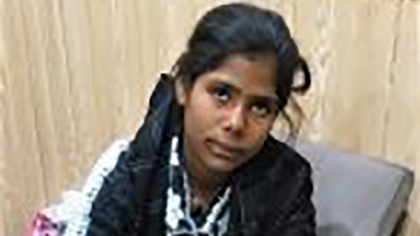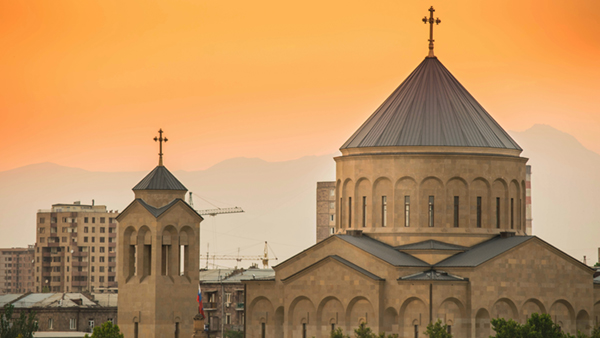“Birmingham is a far cry from the past,” Mayor William A. Bell told participants in a national conference on racial reconciliation March 3–4. “Come and see how hope can make a difference.”
But even with the progress made since the historic Sixteenth Street Baptist Church, Birmingham, bombing in 1963, there is more work to do, according to Bell, Bishop Robert J. Baker of the Catholic Diocese of Birmingham and Dean Timothy George of Samford University’s Beeson Divinity School in Birmingham. The three leaders hosted the conference, “Black and White in America: How Deep the Divide,” held at Beeson. The conference also included a prayer service at Beeson and a reception at the Birmingham Civil Rights Institute.
“In the wake of recent racial turmoil in our country and having experienced much anguish over racial issues in our city of Birmingham we want to offer a possible pathway to dialogue and harmony for the future,” the hosts said. “A reflection/conversation on race relations in the United States among its African-American and white citizens is our humble effort to foster light and hope where darkness and despair may prevail.”
Bell called Birmingham ground zero in civil rights and described what it was like growing up in a segregated society.
“That’s the way it was,” he said, noting that the majority, both black and white, remained silent during the time.
However, the bombing of Sixteenth Street Baptist, where four young girls were killed, was heard around the world and events such as the bus boycott in Montgomery brought people together allowing changes to be made, Bell said. “We turned it around,” he said, suggesting that the young people today “do not know what we went through to get here.”
Also speaking during the conference was Carolyn Maull McKinstry, who was 14 years old and part of the Sixteenth Street Baptist congregation when the bombing happened. The young victims were her friends.
McKinstry, author of “While the World Watched,” told of her experiences as a victim of racism, including watching her grandmother die in the basement of a hospital because blacks were not treated there.
‘A great divide’
“Racism has created a great divide among us and for the most part is unchanged,” she warned. “If it is not confronted, it will destroy us.”
A member of the board of overseers at Samford, McKinstry is an international lecturer on reconciliation and shares how her experience growing up in Birmingham led her to deal with reconciliation.
Two Birmingham-area pastors, Michael Moore and James Lowe, added that repentance must happen before reconciliation can take place. They maintained that both the offended and the offender must repent if true reconciliation is to take place.
Joseph P. Riley Jr., former long-time mayor of Charleston, South Carolina, shared with conference participants how building relationships in advance of tragedy is the key to a successful relationship between races.
Building relationships
“Like a thief in the night, disaster catches you where you are,” he said, suggesting that was the reason the city was spared violence the night nine people were shot “holding their Bibles in church,” referencing a June 17, 2015, shooting.
He told of several initiatives the city has taken to build relationships in government and the city, including the International African-American Museum in historic DeReef Park in Charleston, “a place which allows for healing and to better understand who we are.”
Birmingham Police Chief A.C. Roper participated in a panel discussion on civic leadership moderated by S. Jonathan Bass, Samford professor and university Historian.
Roper suggested there is an over-reliance on police officers because of the failure of other community services. “Trust is hard to build up but easy to destroy,” he said. “You’ve got to work together.”
Birmingham Judge Helen Shores Lee also was on the panel and stressed the importance of being “physically” involved.
A veteran of the civil rights struggle, she told of her home being bombed and how that didn’t stop her from being involved in her community.
“Always give back to your community,” she said, claiming institutional racism is still rampant, especially in courtrooms. “You’ve got to know history and get involved in your community,” she said.
Also speaking to conference participants was Edward K. Braxton, Catholic bishop of Belleville, Illinois, who addressed the Black Lives Movement and the emphasis on the term “minority.”
“Scripture teaches that in Christ there is neither Greek nor Jew, slave nor free, male nor female, neither north nor south, east nor west,” he said. “All are redeemed sinners transformed by Christ … with equal dignity before God.”
Christ redeemed all
“Before God, there is no racial divide because the life, teachings, wondrous signs, suffering, death, resurrection and ascension of Christ and His Pentecost gift of the Holy Spirit has redeemed all,” Braxton said, suggesting that the Church and media eliminate the term “minority” from their vocabulary.
Pray, learn, think and then act, he added.
A second panel included religious leaders from Christian, Jewish and Islamic faiths and dealt with healing and harmony as reconcilers and was moderated by Fisher Humphreys, professor emeritus at Beeson.
Other speakers at the conference included Alabama Attorney General Luther Strange; Wayne Flynt, a professor emeritus at Auburn University; and Anthony Obinna, Catholic archbishop of Owerri, Nigeria.






Share with others: